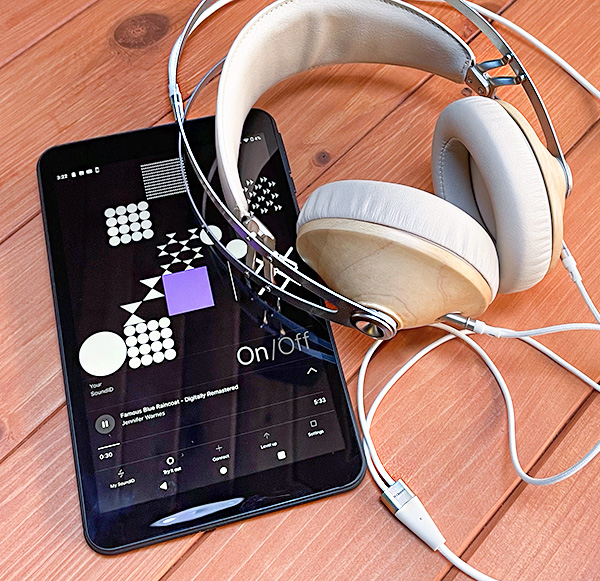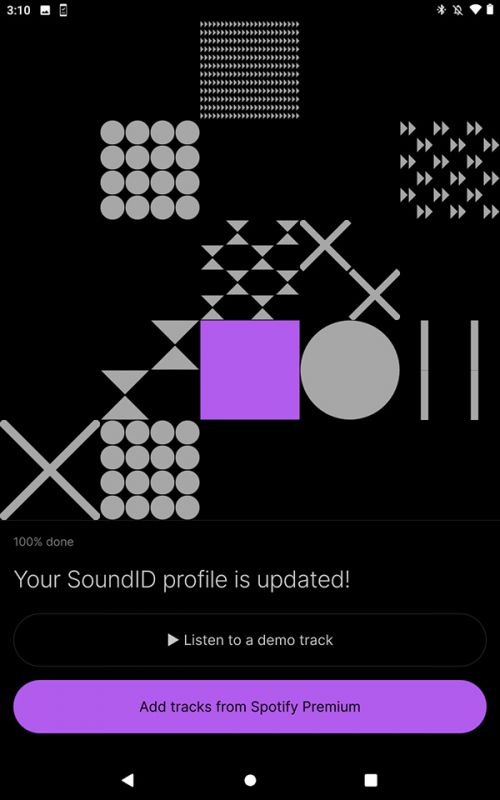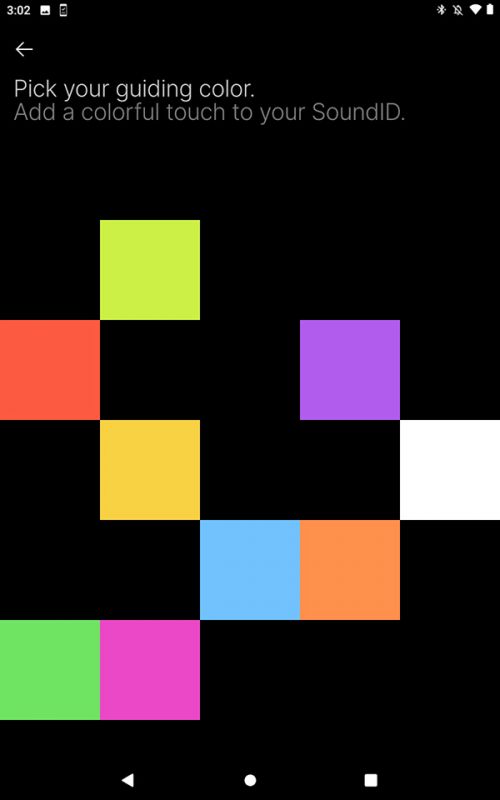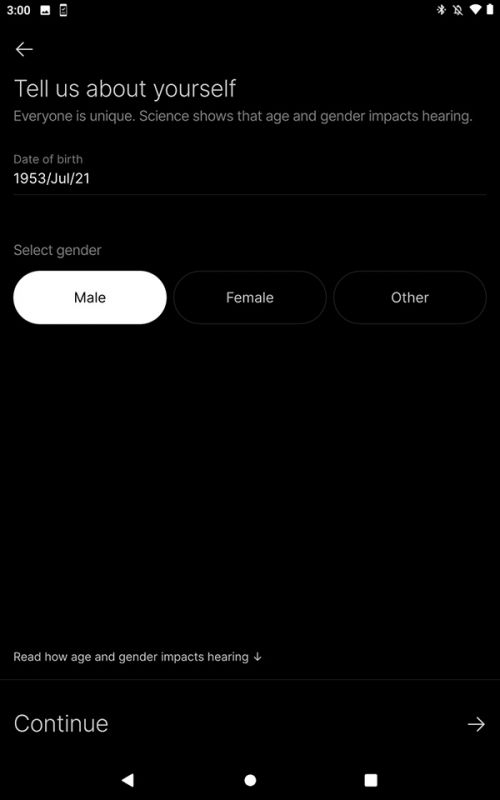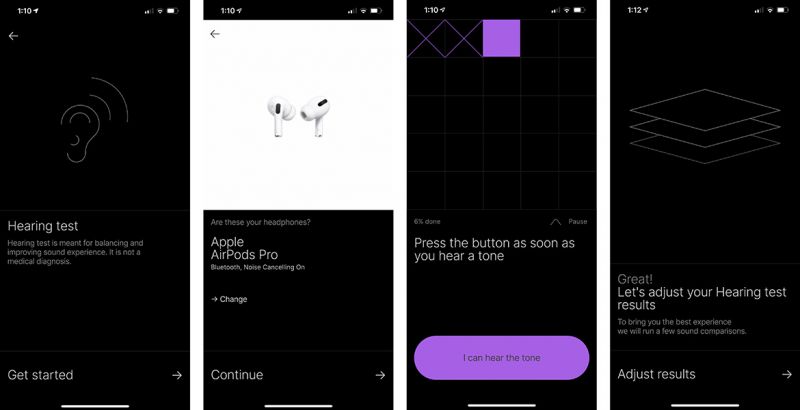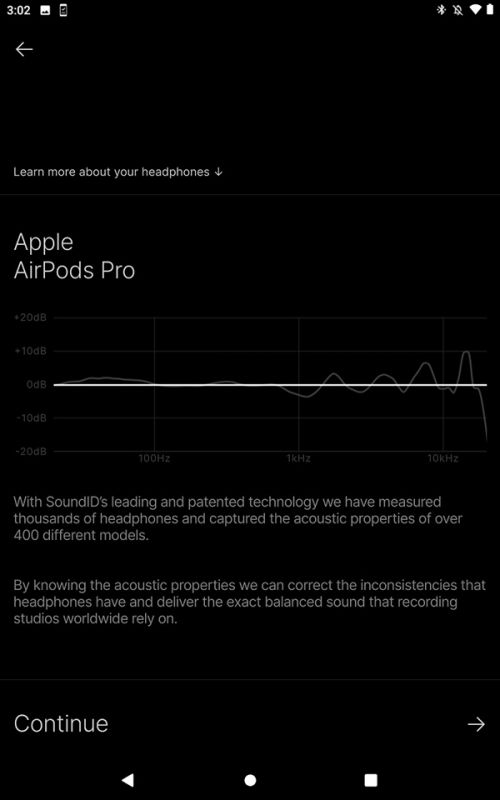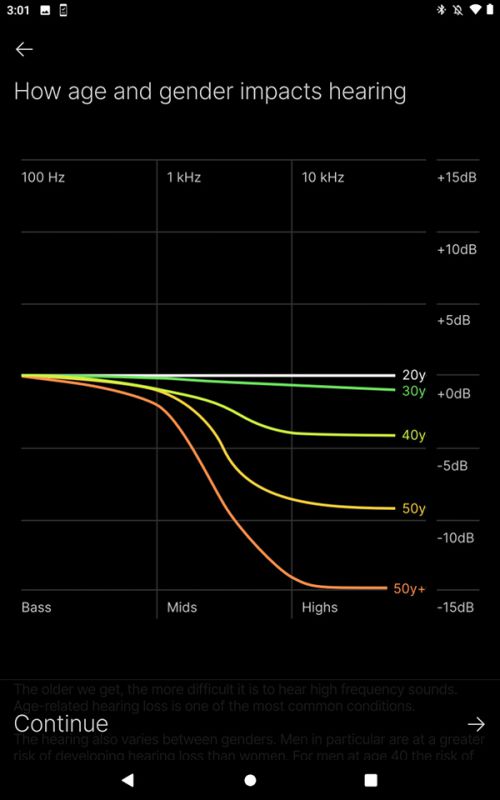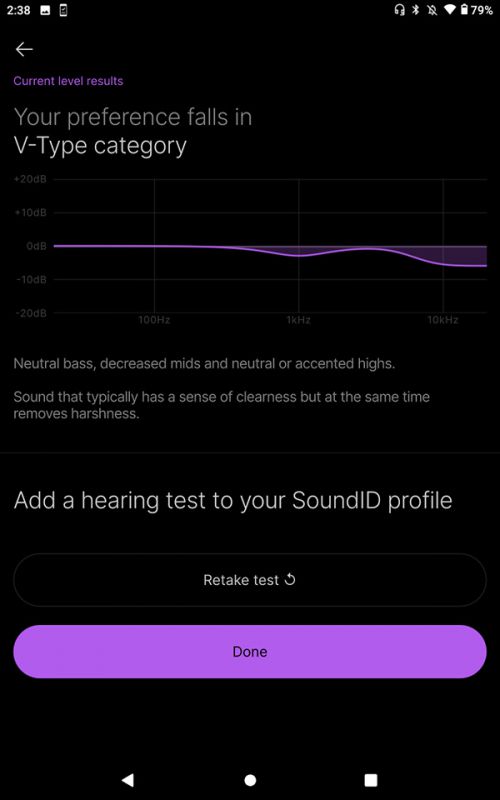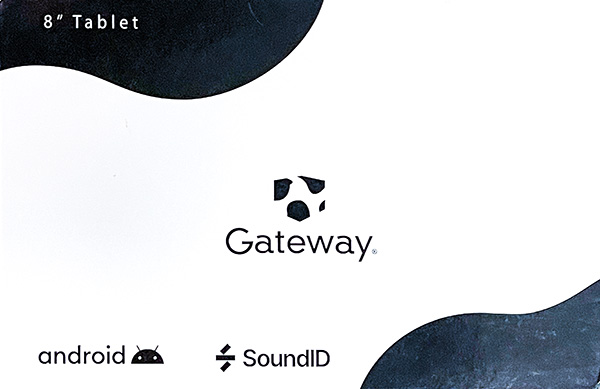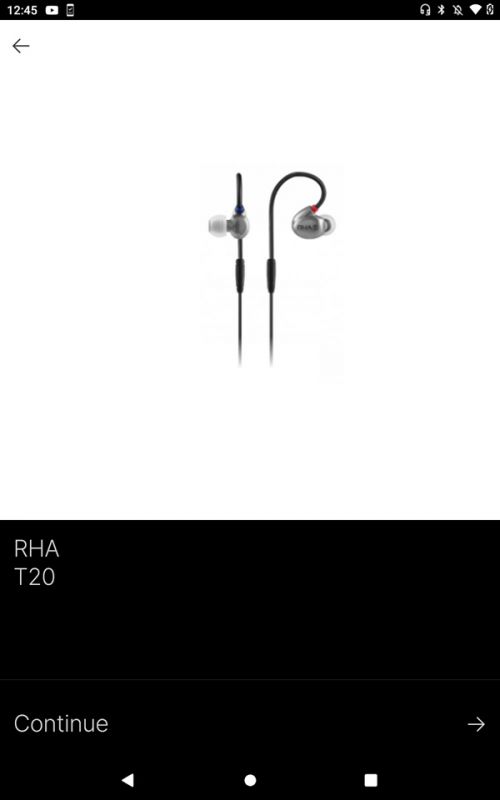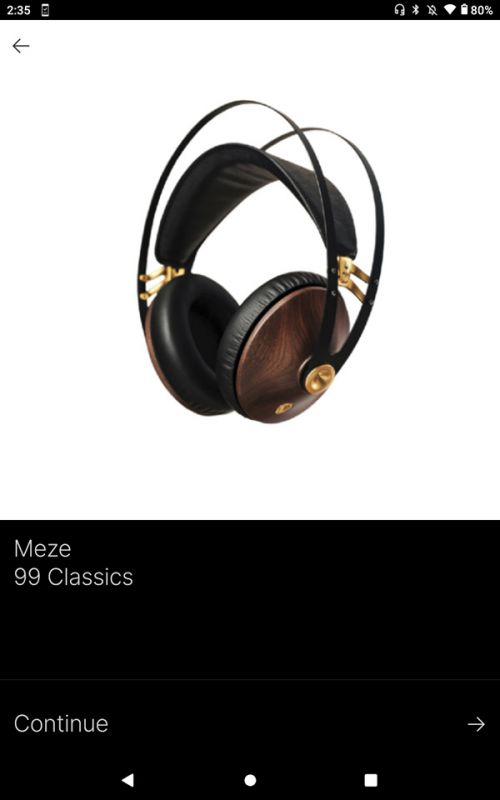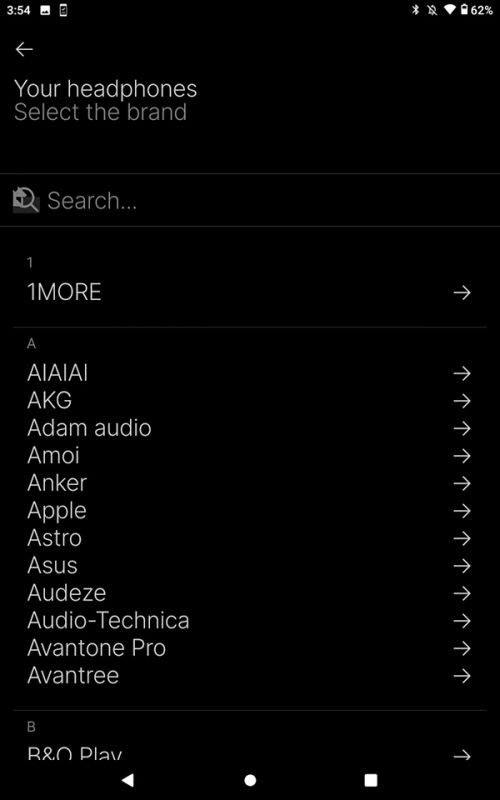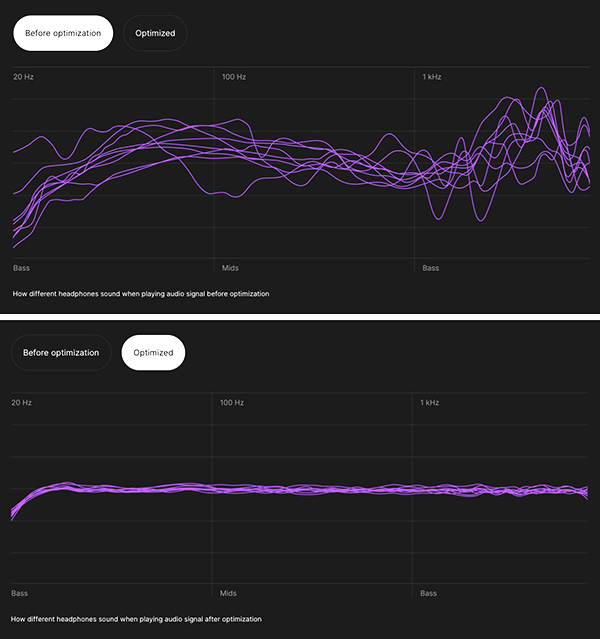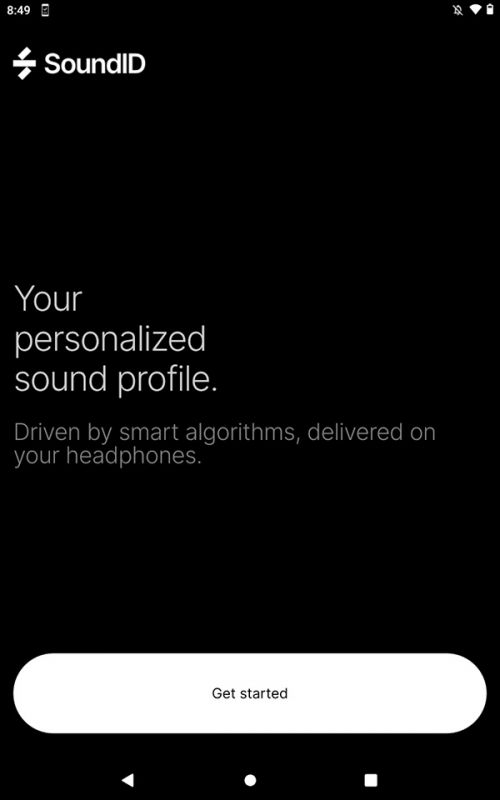REVIEW – Let’s talk audio. Not the hardware kind (I do many reviews of headphones and speakers), but software. A lot of speakers use what’s called built-in digital signal processing (DSP) to tweak the audio for that particular speaker. Stand-alone software can be used to tweak almost any speaker to the listener’s tastes—that’s the theory, anyway. Recently, Sonarworks, a well-renowned professional audio company, developed SoundID as a way to personalize audio for your headphones. So how well does it work and is it worth the investment?
What is it?
SoundID is an app that optimizes a computer’s outgoing audio for headphones. It enhances audio for music, films/TV, and Gaming. It’s available for Android smartphones and a free beta desktop app (Mac/Windows).
Design and features
Professional audio engineers use Sonarworks’ Reference 4 software in the recording and sound engineering process of making music. It’s professional-grade software that helps make music sound as good as the artist intends.
SoundID is made for the other end of that musical route. As a music consumer, the app uses algorithms that are designed to walk you through steps to make your favorite music sound the way you want it to. It “flattens out” the audio bumps and curves that are inherent in audio signals. Theoretically, this gives the listener a more accurate version of their favorite music. However, sometimes accuracy is not what the listener really wants despite what they might think as noted in some on/off profiles I encountered.
The app begins with a (sort of) hearing test that asks you to choose which “A” or “B” version of a tune you prefer using your favorite headphones. I used my Apple iPods Pro earphones because those are my go-to phones at the moment—not because of any stellar audio, but because they are so darned convenient. Anyway, I was happy to jump at a chance to make them sound even better than they already do.
Once the hearing test was done on my iPhone, I used that to test my preferences. You can find your audio preferences without taking the hearing test if you want (CORE level), but I recommend taking the hearing test followed by the pref test (SUPER level).
Once done, I could test it with pre-recorded musical tracks built into the app. But that was it. I couldn’t use it with Apple Music (big bummer) or any other music service on the iPhone. It appears that SoundID only works with Android devices and the beta desktop apps mentioned earlier.
Which brings us to Gateway. Remember Gateway?
Gateway has risen from the ashes of a failed PC company and now has some budget-friendly devices. Sonarworks supplied a Gateway GWAT8-1 Android tablet for trying out SoundID—which comes with the SoundID app already installed. So far, so good.
This is not a review of the Gateway tablet, but since the app is installed (and promoted on the box), I need to address the tablet. First, the supplied Gateway tablet is awful. Just horrendous. Maybe it’s because I own an iPad Pro and nothing comes close to that. But really, this Gateway tablet comes with a warped, plastic screen and is painfully slow. I kept trying to remove the plastic screen cover thinking it was a screen protector, but it was the screen! That’s all I’m going to say about the tablet.
Once charged, I was able to open the SoundID app on the Gateway tablet and when connected to our home wifi, it picked up both my hearing/prefs and the AirPods Pro profile I had earlier made on my iPhone. I managed to plug in two more profiles on the SoundID list of preferred headphones—the RHA T20 earphones and the MEZE 99 Classics headphones. I thought this would provide a representative sampling of SoundID on and off—and Spotify could provide the tunes.
On this Gateway tablet, your SoundID is made to use with Spotify. However, it’s Premium only, not the free version. So to use Spotify to test music, I had to sign up for Premium with a $10 trial (3 months). Sheesh. So much for free apps.
Once connected to Spotify Premium, I was able to play whatever music I desired. I began with Jeff Beck’s “I Ain’t Superstitious” from the “Truth” album using the RHA T20 earphones. Audio improvement was immediately apparent with SoundID on using the supplied RHA profile. With SoundID off, the song sounded tinny and distant. With SoundID on, music took on a full and satisfying range, with more depth to the song. And this recording is not all that good to begin with, so kudos to Sonarworks. The cheapo Gateway even sounded better than the same song heard directly from my iPhone using the Apple lightning to mini-plug dongle (with no SoundID since it doesn’t work on iOS). Impressive.
I then tried the MEZE 99 Classics headphones. These wired headphones still sound incredible years after they were released. I sampled Jennifer Warnes’ version of Leonard Cohen’s “Joan of Arc” from the great sounding “Famous Blue Raincoat” album. With SoundID on, there’s more of a kick to the percussion you can feel inside your head that’s missing with SoundID off. Cohen’s added gravelly vocals sound a bit smoother with SoundID on. My ears actually prefer his vocals with SoundID off. Weird. Keep in mind that this is with SoundID’s profile for the 99 Classics headphones. Another interesting thing is that I also preferred listening to this song on my iPhone (no SoundID of course). This tells me that the recording has a big impact on how it sounds in different listening environments.
Sound ID seems to be a mixed bag depending on various factors. Obviously, the chosen profile affects the sound. What SoundID cannot control is the hardware digital audio convertor (DAC) chip used on the device being listened to. I can’t imagine the Gateway having a great chip, knowing how cheap the tablet is. Even so, music with SoundID on sounded quite good, with the headphones/earphones I used. Maybe a much better Android device will allow SoundID to improve the audio even more dramatically.
Note that SoundID has many profiles available. If you don’t see your headphone listed, they invite you to request it be added in future updates.
When I used SoundID beta with my MacBook Pro, the Meze 99 Classics headphones sounded different than they did on the Gateway tablet. There was more clarity at the expense of a more robust bottom end. Bass was more noticeable on the tablet. Using the Mac beta app, It sounded like what most recording engineers would prefer, but I don’t think most consumers would prefer this profile—at least on the desktop app.
Just for fun, I tried SoundID on my Mac (beta) using desktop speakers—with mixed results. I tried using the AirPods Pro profile with Audioengine HD3 speakers. The audio sounded pleasing but different. I wouldn’t call it better. The biggest disadvantage was a hit to the overall volume—even with SoundID off. I had to uninstall SoundID to recover the volume loss. The speakers would not play nearly as loud as they would with no SoundID. It would be nice if the app included desktop speaker profiles in addition to headphone profiles for MacOS. Keep in mind that SoundID was not designed for speaker use—it was just an experiment.
What I like
- It works
- Many headphone and earphones already profiled
- The hearing test is easy
What I’d change
- Make it work with the Apple ecosystem
- Keep it affordable (or free) when the beta is over.
Final Thoughts
I have conflicting thoughts on Sonarworks SoundID app. It needs to work within the Apple iOS space. If I could use it with Apple Music, that would be great. Even though I can use it successfully on macOS, this kind of software is better suited for personal listening on the go. Then there’s that Gateway tablet. Why Sonarworks teamed up with Gateway for what is basically an audiophile app is beyond me. The software deserves better. Let’s hope it evolves into a more broadly accepted app.
The Android/iOS app is free. The desktop beta is free—for now. There is no word yet on what it may cost when it comes out of beta. Sonarworks is working to get SoundID built into audio hardware. You can read about it here.
Price: Free (for now)
Where to buy: Sonarworks
Source: The sample of this product was provided by Sonarworks.

